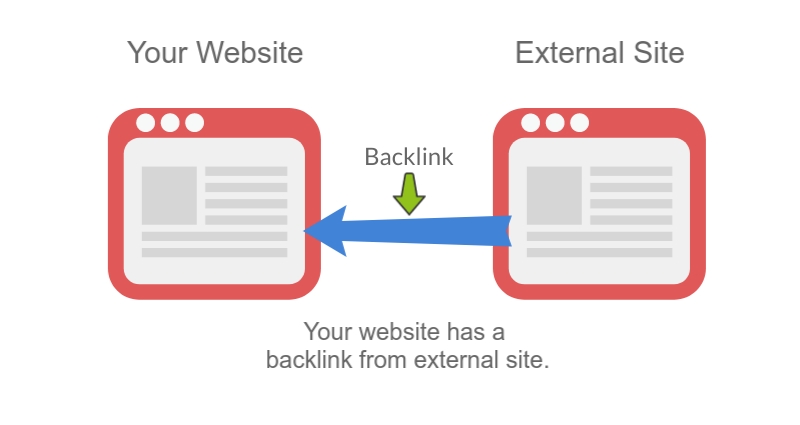Online reputation management is an important aspect of modern business operations, and the importance of maintaining a positive online image cannot be overstated. With increasing reliance on digital channels for communication, information and commerce, it is essential for businesses to have a strong and effective online reputation management strategy.
Enter search engine optimization (SEO), the unsung hero of online reputation management. Many businesses focus on social media and crisis management strategy, but neglect to consider the role that SEO can play in protecting and enhancing their online reputation. By optimizing your website, content, and online presence for search engines, you can not only improve your visibility, but also shape the narrative around your brand.
Think of SEO as your personal online bodyguard, always keeping tabs on your digital footprint and making sure your business is presenting its best face to the world. Whether you’re trying to quell negative press or boost positive coverage, a well-executed SEO strategy can make all the difference. So, buckle up, grab a cup of coffee, and let’s dive into the fascinating world of SEO and online reputation management!
Keyword Research and Targeting
Keyword research and targeting are two important components of a successful SEO strategy and play a vital role in online reputation management. The first step in any SEO campaign is to understand what your audience is searching for and what words and phrases they are using to find you. This is where keyword research comes in handy.
By conducting in-depth keyword research, you can identify the keywords and phrases that are most relevant to your business and have the highest search volume. You can then use this information to create optimized content for those keywords, increasing your chances of ranking highly in search engine result pages (SERPs). This, in turn, can help shape the narrative around your brand and improve your online reputation.
Once you have identified your target keywords, it is time to start targeting them. This includes including those keywords in your website’s meta description, header, and body content in a natural and organic way. It’s important to avoid keyword stuffing, as it can really hurt your rankings and hurt your online reputation.
Targeting relevant keywords is not only important for improving your visibility in search results, but it also helps search engines understand what your website is about and what you have to offer. By targeting the right keywords, you can ensure that your online reputation is accurately appearing in search results and that you are attracting the right audience to your site.
On-page Optimization
On-page optimization is a key aspect of SEO and can make all the difference when it comes to online reputation management. On-page optimization involves optimizing various elements of your website to improve its visibility and ranking in search engine result pages (SERPs). This, in turn, can have a significant impact on your online reputation.
One of the primary components of on-page optimization is the meta description. A well-crafted meta description can not only improve your click-through rate (CTR) from search results, but also help shape the story around your brand. By including relevant keywords and an attractive description of your business, you can ensure that your online reputation accurately appears in search results.
Another important aspect of on-page optimization is header optimization. Header tags (H1, H2, H3, etc.) are used to structure the content on your website and provide context to search engines. By using header tags to highlight the most important aspects of your content, you can improve the readability of your website and make it easier for search engines to understand what your site is about.
In addition to meta description and header optimization, there are many other on-page optimization techniques that can support online reputation management. These include internal linking strategies to improve website speed and user experience, optimizing images and videos for search engines, and improving the overall structure of your site.
Content Creation and Marketing
Content creation and marketing are two essential components of a successful SEO strategy and play a vital role in online reputation management. In today’s digital landscape, content is king, and having a steady stream of high-quality, relevant content is essential for both search engine optimization and online reputation management.
By creating and promoting valuable and relevant content, you can showcase your expertise in your field and establish your business as a trusted and authoritative source. This, in turn, can help shape the narrative around your brand and improve your online reputation.
When it comes to content creation, it is important to keep your target audience in mind. What are their needs and interests? What questions do they have about your industry? By answering these questions and creating content that addresses their needs and concerns, you can build a loyal following and improve your online reputation.
Once you have created your content, it is time to start marketing it. This includes promoting your content through various channels such as social media, email and paid advertising. By sharing your content and engaging with your audience, you can attract more traffic to your site and improve your visibility in search engine results pages (SERPs).
Link Building and Social Media
Link building and social media are two important elements of a comprehensive SEO strategy and can have a significant impact on online reputation management. Link building is the process of getting links from other websites that point back to your site. These links, also known as backlinks, act as a “vote of confidence” from other websites and can help improve your visibility and ranking in search engine results pages (SERPs).
In addition to helping improve your search engine rankings, backlinks can also help shape the narrative around your brand and improve your online reputation. By getting high-quality backlinks from reputable websites, you can demonstrate your credibility and establish your business as a reliable and authoritative source.
On the other hand, social media is a powerful tool for building and maintaining your online reputation. By actively engaging with your audience on social media, you can build relationships, respond to customer inquiries and complaints, and promote your brand. By using social media to showcase your expertise, address customer concerns, and build a positive reputation, you can improve your online reputation and protect your brand from potentially negative publicity.
Conclusion
In conclusion, SEO plays a vital role in online reputation management. By leveraging various SEO techniques such as keyword research and targeting, on-page optimization, content creation and marketing, link building and social media, you can improve your visibility in search engine results pages (SERPs), drive the right audience can attract. Site, and shape the narrative around your brand.
However, it’s important to remember that SEO is an ongoing process and requires consistent effort to be effective. By constantly monitoring and optimizing your website, you can stay ahead of the curve and ensure that your online reputation remains positive and secure.
In today’s digital landscape, your online reputation is more important than ever. By leveraging the power of SEO, you can take control of your online reputation and ensure that your brand is accurately represented in search engine results pages. So, wait no longer, start optimizing your website today and protect your online reputation for years to come!




One thought on “How Seo Support For Online Reputation Management”